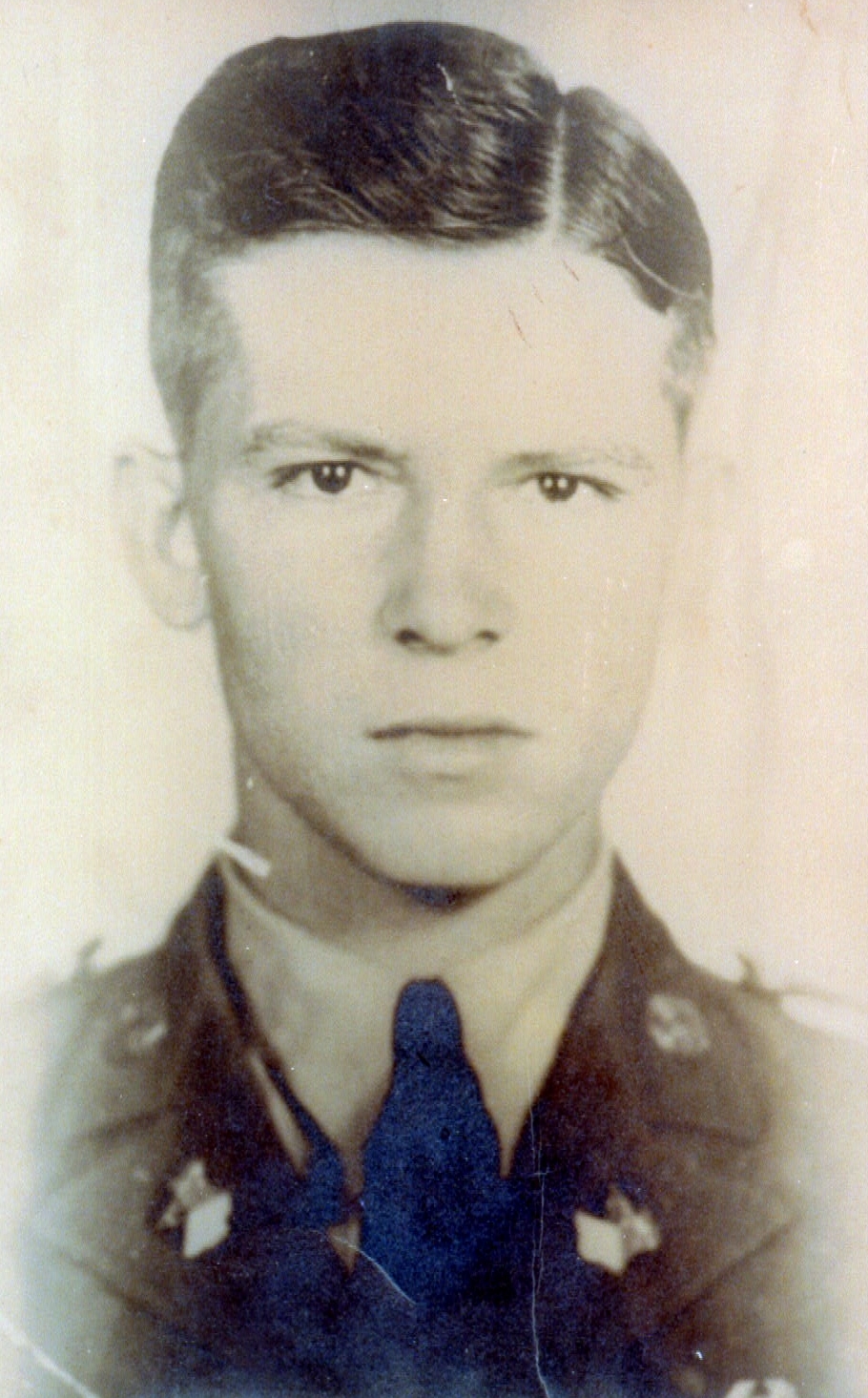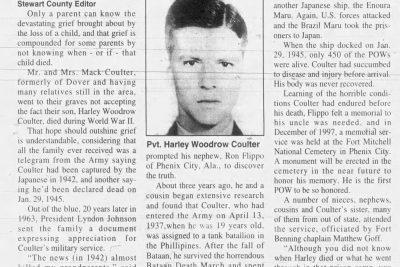Private Harvey (also Harley) Woodrow Coulter was born at Dover, Stewart County, Tennessee, the son of Mack C. Coulter and Ora Coe Coulter.
He was assigned to the 192nd Tank Battalion.
He died non battle on 29 January 1945. He is remembered on the Tablets of the Missing at the Honolulu Memorial Cemetery, Hawaii. He is memorialized at Fort Mitchell National Cemetery, at Fort Mitchell, Russell County, Alabama.
The Stewart-Houston Times, 16 June 1998
Only a parent can know the devastating grief brought about by the loss of a child, and that grief compounded for some parents by not knowing when- or if – that child died. Mr. and Mrs. Mack Coulter, formerly of Dover and having many relatives still in that area, went to their graves not accepting the fact that their son, Harley Woodrow Coulter, died during World War II. That hope should outshine that all the family ever received was a telegram from the Army staying Coulter had been captured by the Japanese in 1942, and another saying he’d been declared dead on Jan. 29, 1945. Out of the blue, 20 years later in 1963, President Lyndon Johnson sent the family a document expressing appreciation for Coulter’s military service.
“The news (in 1942) almost killed my grandparents,” said Jonathon Wofford, Coulter’s nephew. “They had a terrible time with it… They just knew he was alive somewhere.” The lingering doubt about the last year of Coulter’s life, a Dover native like his seven siblings, prompted his nephew, Ron Flippo of Phenix City, Ala., to discover the truth. About three years ago, he and a cousin began extensive research and found that Coulter, who had entered the Army on April 13, 1937, when he was 19 years old, was assigned to a tank battalion in the Philippines. After the fall of Bataan, he survived the horrendous Bataan Death March and spent three years in captivity in the Philippines. He and over 1,600 other prisoners of war were then placed on a Japanese ship, the Oryuku Maru, known by survivors as the Hell Ship. U.S. forces sunk the ship and the POW’s were picked up by another Japanese ship, the Enoura Mary. Again, U.S. forces attacked and the Brazil Mary took the prisoners to Japan. When the ship docked on Jan.29, 1945, only 450 of the POW’s were alive. Coulter had succumbed to disease and injury before arrival. His body was never recovered. Learning of the horrible conditions Coulter had endured before his death, Flippo felt a memorial to his uncle was needed, and in December of 1997, a memorial service was held at the Fort Mitchell National Cemetery in Phenix City. A monument will be erected in the cemetery in the near future to honor his memory. He is the first POW to be so honored. A number of nieces, nephews, cousins and Coulter’s sister, many of the from out of state, attended the service, officiated by Fort Benning chaplain Matthew Goff. “Although you did not know when Harley died or what he went through in that prison camp, you can be assured that God knew, and God was with him,” Goff said. Flippo said the memorial brings to an end questions about Coulter’s last years. “I’m glad we can finally put it to rest now,” Flippo said.
- Rank: Private
- Date of birth: 23 December 1919
- Date of death: 29 January 1945
- County: Cumberland
- Service Branch: Army/Army Air Forces
- Division/Assignment: 192nd Tank Battalion
- Theater: Pacific
- Conflict: World War II
- Burial/Memorial Location: Honolulu Memorial, Honolulu, Hawaii
- Location In Memorial: Pillar IX, Top Panel
- Contact us to sponsor Harvey W. Coulter
Image Gallery
Click a thumbnail below to view at full size.



